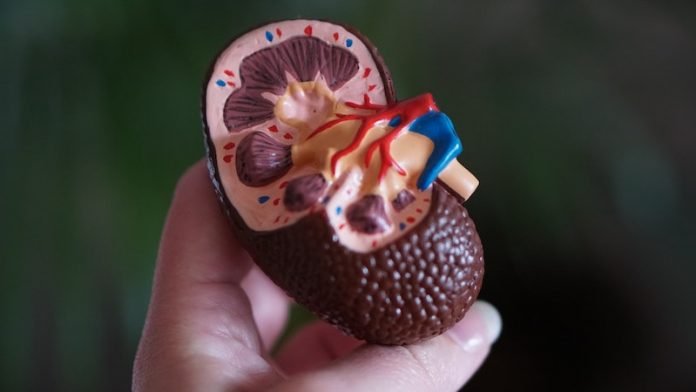
Kidney disease can lead to other health problems.
Your health care team will work with you to help you avoid or manage:
High blood pressure. High blood pressure can be both a cause and a result of kidney disease. High blood pressure damages your kidneys, and damaged kidneys don’t work as well to help control your blood pressure.
With kidney failure, your kidneys can’t get rid of extra water. Taking in too much water can cause swelling, raise your blood pressure, and make your heart work harder.
Blood pressure-lowering medicines, limiting sodium and fluids in your diet, staying physically active, managing stress, and quitting smoking can help you control your blood pressure.
Heart disease. Kidney disease and heart disease share two of the same main causes: diabetes and high blood pressure.
People with kidney disease are at high risk for heart disease, and people with heart disease are at high risk for kidney disease.
The steps that you take to manage your kidney disease, blood pressure, cholesterol, and blood glucose (if you have diabetes) will also help you prevent heart attacks or strokes.
Anemia. When kidneys are damaged, they don’t make enough erythropoietin (EPO), a hormone that helps make red blood cells. Red blood cells carry oxygen from your lungs to other parts of your body.
When you have anemia, some organs—such as your brain and heart—may get less oxygen than they need and may not function as well as they should. Anemia can make you feel weak and lack energy.
Your health care provider may prescribe iron supplements. In some cases, your provider may prescribe medicines to help your body make more red blood cells.
Mineral and Bone Disorder. Healthy kidneys balance the levels of calcium and phosphorus in your blood and make hormones that help keep your bones strong.
As kidney function drops, your kidneys make less of the hormone that helps your body absorb calcium.
Like one domino knocking over another, the low level of calcium in your blood triggers the release of parathyroid hormone (PTH). PTH moves calcium from your bones into your blood. Too much PTH can also make you feel itchy.
don’t remove as much phosphorus. Extra phosphorus in your blood also pulls calcium from your bones.
Without treatment, bones may become thin and weak. You may feel bone or joint pain. Changes to your eating plan, medicines, supplements, and dialysis may help.
Follow your eating plan to help maintain a healthy balance of salts, minerals, and fluids in your body.
Malnutrition. As your kidney disease gets worse, it can be a challenge to keep yourself well fed. You may not feel hungry, food may taste different, or you may lose interest in food.
Infections and other stresses on your body can make it hard for your body to use the food you do eat.
Working closely with a dietitian to be sure you’re eating enough of the right foods can have long-term benefits for people with kidney disease.
Feeling itchy. Itching is common and happens for different reasons. You may feel itchy because you have dry skin. Using a moisturizer may help.
Or, you may feel itchy because you have too much phosphorus in your blood. Eating less phosphorus may help stop the itching.
Your health care provider may prescribe a medicine called a phosphate binder for you to take with meals. These medicines keep the phosphorus in your food from entering your bloodstream.
UV light from sunlight or a light box helps some people find relief.
Sign up for our newsletter for more information about this topic.
If you care about kidney health, please read studies about unhealthy eating habits that may increase your risk of dangerous kidney disease, and how to protect against kidney disease.
For more information about kidney health, please see recent studies about why processed foods trigger chronic kidney disease, and results showing this diabetes drug may help slow down chronic kidney disease.



